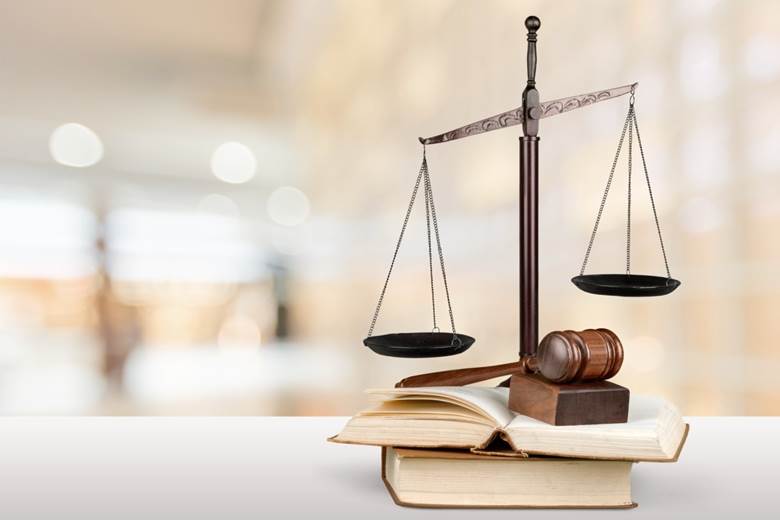Six Things You Should Know About Any Legal Process

Research shows that the worldwide legal services market will grow to $788.94 billion in 2022. The market is growing at a 10.6% Compound Annual Growth Rate.
Often, people involved in disputes rush to judgment and opt to sue. You can always solve disputes through communication and compromise. That can be injuries and car accidents to family-related disputes.
Note that not all disputes involve a legal process. Remember that a civil suit will involve financial compensation, which can or cannot solve the dispute.
Also, the amount of cash you get comes at a cost. You will have to settle a lawsuit filing fee and attorney’s fee and think about the time it will take to prepare to go to court.
Keep reading to know the six things you should know about any legal process.
1. Civil Vs. Criminal Law
The two laws are the most basic difference of the Anglo-American legal system. We have two distinct types of legal cases: Criminal cases and civil cases.
The battle is always between the state and people in a criminal case. But, in a civil case, the conflict is between two or more parties.
In short, civil cases are person vs. person, while criminal cases are person vs. state. The justification for civil-criminal distinctions is that wrongs are against general public order.
But, civil wrongs are crimes against private persons. Criminal and civil trials may sometimes occur for the same act.
For example, murdering someone may lead to a criminal trial for murder and a civil trial for wrongful death. A good instance for this is the O.J. Simpson case.
2. Probate Law
The court determines whether the instrument offered as a will is valid during a probate legal process. When the probate court finds the will to be legit, it supervises the distribution of property, basing it on the will’s terms.
Often, before death, the deceased names the executor of the will. The executor oversees the assets administration during the probate process.
A person might die intestate or without writing a will. Here, the decedent’s estate will still undergo the probate legal process. The court might appoint an administrator to divide the property.
The probate court then approves the distribution of the decedent’s property. We know the executors and administrators as personal representatives.
Note that the property passing through the probate process is subject to estate tax and incurs an inheritance tax. To learn more about the probate legal process, go here.
3. Legal Process Outsourcing (LPO)
LPO refers to outsourcing a legal function to another legal process service provider. The process is a substantial measure for saving cost and also knowledge sharing.
There is a transfer of discrete legal services from internal departments to other external firms or local lawyers. You will leverage the strength and expertise of skilled professionals to finish a routine or task.
Organizations can bring in new businesses and offer customers the greatest value and top services. We attribute the growth to the advantages of allowing firms to strengthen their capabilities.
The LPO is one of the fastest-growing businesses worldwide. LPO continues to hold massive potential for years to come. LPO’s popularity is growing in law firms and corporate legal departments.
4. Legal Eviction Process
Six basic laws govern the legal eviction process. We have local law, state law, federal law, leases, common law, and court rules.
Many states regulate residential renting, which includes eviction processes. The states bases their laws on the Model Residential Landlord-Tenant Code.
Often, states and local governments supplement these regulations. Also, tenants and landlords can further regulate the evictions through lease terms.
For instance, the lease can specify the timing and form of eviction notices. Also, the lease provision can overrule some common law rules. But, they cannot conflict with official regulations.
5. Burden of Proof
To win any case in court, you must meet the burden of proof. The court determines the weight of the burden.
That will depend on the type of trial and, at times, on the specific charge. The proof of burden in a criminal case is reasonable doubt.
That means any person should not have serious doubt about the charge’s truth. We sometimes characterize a reasonable doubt as 95% certainty about the court’s verdict.
In a civil trial, the proof is a preponderance of the evidence. That means any person weighing all the relevant evidence considers all charges true.
Then, the accuser uses convincing evidence. We characterize the clear and convincing evidence as 75% certainty.
6. Do You Have a Good Case?
That may seem obvious, but you must have a genuine legal claim or cause of action for the court to support your position.
For instance, you have fallen in a store, that doesn’t imply you will succeed if you pursue a slip and fall claim. You must prove the elements of such a claim. That will include the owner of the store’s fault for failing to secure your safety.
Another instance is when someone does a poor job after hiring them to fix your house. That may not be a breach of contract since the work was complete; it was just a shoddy job.
You cannot sue such a person for the type of case you think you have, but there are other means of fixing the situation. You can settle the case outside court.
Knowing About Any Legal Process Is Important
You have to consider many factors before suing to know whether you have a winnable case. But, you first have to understand all there is about any legal process.
Note that most attorneys will provide you with a free initial consultation. Also, some will not collect any amount unless they win the case.
We hope you’ve enjoyed reading this article. If so, keep checking our website for more informative blogs.




